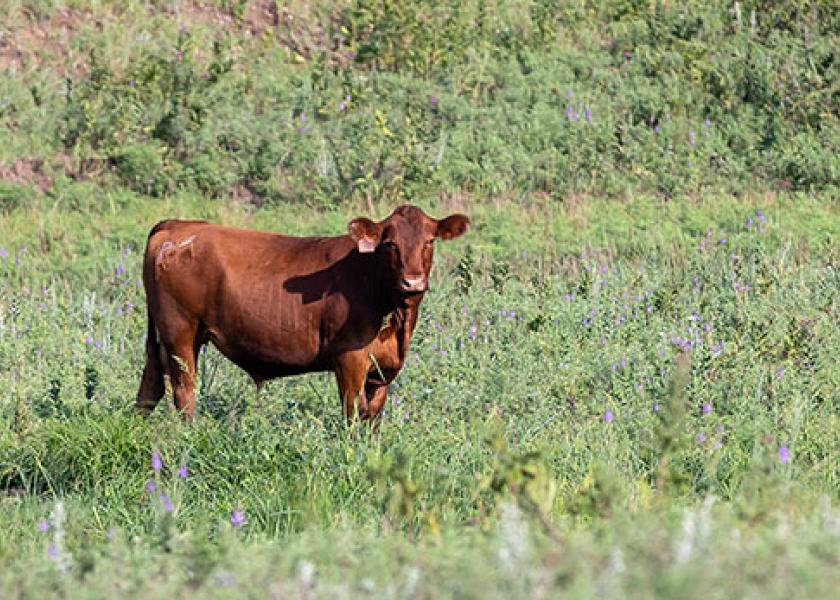Rabies And Blackleg Are Deadly Diseases for Cattle

Just as nature-loving humans can experience anything from a twisted ankle to a bug bite when they are in the outdoors, living in nature can also come with risks for illness in cattle.
On a recent Kansas State University Cattle Chat podcast, three veterinarians discussed two rare diseases that can impact cattle – rabies and blackleg.
Rabies
“Rabies is a virus that cattle can get from some sort of wildlife exposure,” said veterinarian Brian Lubbers. “It can present itself in a furious form in which the cattle are acting aggressively, but it is more common for cattle with rabies to be walking in a stupor and having abnormal bellows.”
In both cases, the cattle will be salivating more than normal and often will appear to be choking, Lubbers said.
“People need to be cautious when interacting with cattle suspected of carrying rabies because the disease can be transmitted to humans,” veterinarian Bob Larson said. “Before a producer or veterinarian places their hand in the mouth or throat of a cow because they suspect that the animal is choking, it is important to rule-out rabies as the cause of excessive salivation.”
The veterinarians said there is no treatment for rabies in cattle so if it is suspected the next step is to euthanize the animal and confirm it with a brain tissue diagnosis. The cattle must be euthanized in a way that preserves the brain tissue and is often best managed with the assistance of a veterinarian according to Larson and Lubbers.
Blackleg
Another illness that cattle are exposed to through daily life is blackleg.
“Blackleg is a clostridial disease that cattle contract through the soil. When the soil gets disrupted like in the case of flooding, we may see one or two animals in a herd infected with blackleg,” Lubbers said.
Lubbers said the bacteria that causes blackleg is similar to the bacteria that causes tetanus. “These organisms live in the soil so they are everywhere. Whether or not a cow develops blackleg, is a factor of the amount of exposure and immunity that particular animal had.”
Larson said the reason it is called blackleg is because when the animal is necropsied (an exam after death) the muscle tissue is black and very damaged.
“Calves experiencing bruising or muscle damage may develop blackleg and death typically occurs very rapidly,” Larson said.
He said blackleg is hard to catch because of the rapid pace in which the animal is afflicted with the sickness.
“With this disease the cattle look fine one day and are dead the next,” Larson said. “The most common sign of the disease while they are alive is lameness because of the soreness in the muscle tissue.”
To keep cattle from experiencing blackleg, producers should immunize to prevent the disease said the veterinarians.
“With blackleg, I will not be able to treat my way out of that disease so it is better to prevent it with a vaccination,” Larson said. “Our vaccines are very effective at preventing this disease.”
To hear more of this discussion, listen to the Cattle Chat podcast online.







